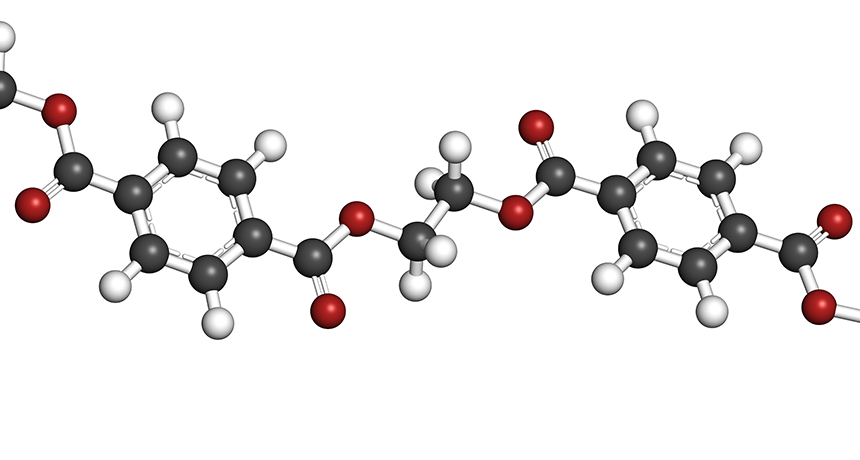Polymers in Construction: Stronger, Less heavy, and Extra Sturdy
Polymers in Construction: Stronger, Less heavy, and Extra Sturdy
Blog Article
Checking Out the Varied Applications and Benefits of Polymers in Different Industries
Polymers, with their varied variety of residential properties and functionalities, have come to be crucial in various markets, each gaining one-of-a-kind gain from their application. Polymers. From enhancing safety and security and efficiency in the automotive industry to revolutionizing medical tools in the health care sector, polymers play an essential role. Their eco-friendly nature is modifying the landscape of sustainability techniques. As we dig right into the depths of polymers in electronics, we uncover cutting-edge advancements, while their architectural integrity transforms the realm of building and facilities. The prevalent influence of polymers throughout industries is a testimony to their flexibility and versatility, forming the future of numerous sectors.
Automotive Industry Applications
Polymers play a crucial function in improving the performance and resilience of different components within the auto sector. These functional materials are thoroughly made use of in the manufacturing of different components, ranging from indoor components to under-the-hood applications. One noticeable use of polymers in the auto market remains in the manufacturing of light-weight components. By replacing typical metal get rid of polymer-based choices, automobiles can attain enhanced fuel effectiveness without compromising on toughness or safety and security.

Health Care Industry Advantages
In different healthcare applications, the advantages of utilizing polymers are commonly acknowledged for their diverse series of useful residential properties. Polymers play a crucial duty in the health care sector due to their adaptability, biocompatibility, and cost-effectiveness. Among the key advantages of polymers in medical care is their ability to be customized to specific needs, such as flexibility, longevity, and biodegradability, making them ideal for a large range of medical applications.
Polymer-based materials are thoroughly utilized in medical tools, such as catheters, implants, prosthetics, and drug shipment systems, because of their biocompatibility and ability to resemble all-natural cells. These materials can lower the risk of sensitive reactions or rejections, improving client security and results. Additionally, polymers are lightweight, making them ideal for wearable clinical tools and ensuring patient comfort.
Moreover, polymers enable the advancement of ingenious treatment approaches, such as hydrogels for cells design and nanocomposites for targeted drug delivery. Their convenience of handling and sterilization makes them look at this now vital for keeping high requirements of health in medical care settings. In general, the varied advantages of polymers contribute dramatically to improvements in medical modern technology and individual care.
Ecological Advantages of Polymers

Moreover, polymers can add to energy financial savings because of their light-weight nature. In markets such as transportation, light-weight polymer products can help in reducing gas usage and greenhouse gas emissions. In addition, polymers can make it possible for the advancement of energy-efficient products such as insulation materials that improve power conservation in structures.
Furthermore, polymers play an essential role in decreasing water contamination. The use of polymer-based filtering systems can efficiently remove contaminants and contaminants from wastewater, safeguarding water sources and ecosystems. Generally, the ecological benefits of polymers make them valuable properties in promoting sustainability and green methods across numerous markets.
Polymers in Electronics and Technology
Considering the raising demand for ingenious and lasting remedies in modern markets, the assimilation of sophisticated polymer technologies in the world of electronics and innovation has actually become a pivotal strategy for driving efficiency and efficiency. Polymers have actually revolutionized the electronic devices industry by making it possible for the manufacturing of lighter, much more flexible, and durable electronic devices. From smartphones to clinical tools, polymers play a critical duty in More Help enhancing item style and capability.
One considerable advantage of polymers in electronics is their protecting residential properties, which aid safeguard delicate electronic elements from ecological elements and electrical disturbance. In addition, polymers are necessary in the growth of versatile display screens, wearable modern technology, and printed electronic devices, using unlimited possibilities for creating smart and interconnected devices.
Additionally, using polymers in electronic packaging has resulted in improvements in miniaturization and thermal monitoring, enhancing the general efficiency and dependability of electronic systems. As modern technology continues to develop, the versatility and versatility of polymers will most certainly drive further technology in the electronics sector, forming the future of innovation.
Role of Polymers in Construction and Facilities
Polymers offer numerous benefits in the building and construction market due to their adaptability, toughness, and cost-effectiveness. One essential role of polymers in building is their usage in layers and sealers, providing defense against environmental aspects such as dampness, UV radiation, and deterioration.
Additionally, polymers play an essential role in lasting building practices by allowing the development of energy-efficient frameworks. Protecting materials made from polymers assist control interior temperature levels, reducing the requirement for home heating and cooling down systems and ultimately decreasing power consumption. Moreover, using polymer-based composites in infrastructure projects such as bridges and roadways improves their longevity and minimizes upkeep costs. In general, the unification of polymers in building and infrastructure displays their considerable influence on contemporary design techniques.
Conclusion
Finally, polymers play a crucial function in numerous sectors such as automobile, medical care, environmental, electronic devices, and building. Their versatile residential or commercial properties make them important in creating cutting-edge services and products. From boosting gas effectiveness in vehicles to boosting clinical tools, polymers use numerous benefits. Additionally, their effect on reducing click now waste and advertising sustainability highlights their significance in modern applications. The widespread use of polymers shows their significant contribution to progressing technology and enhancing lifestyle.
Report this page